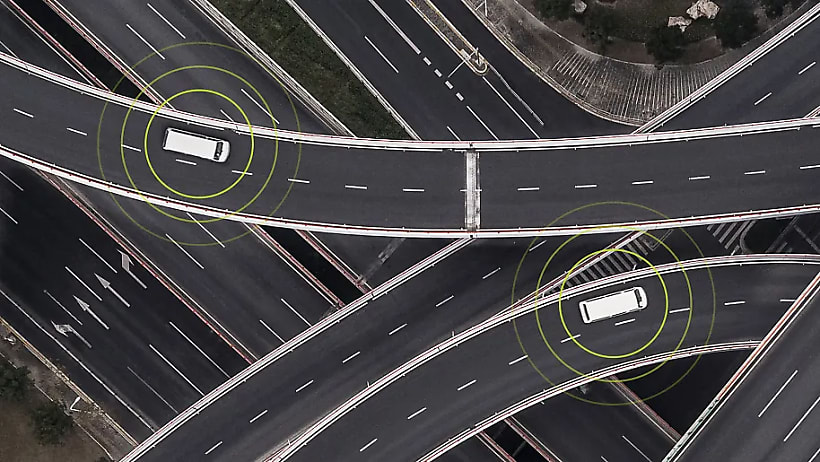For over a decade, my professional focus has been on fleet connectivity and data-based business models.
In my position as CEO of Mercedes-Benz Connectivity Services GmbH, I’m deeply engaged in how companies and OEMs utilise vehicle data. Our company specialises in turning Mercedes-Benz vehicle data into valuable data products, a process we conduct in close cooperation with our colleagues at Mercedes-Benz AG.
Considering the technological opportunities that today’s vehicles provide, along with the experience we’ve accumulated over the years, now is a great time to reevaluate digital fleet management. To give insight into my perspective, I’ll begin with a retrospective on my early days in the field. Then, I’d like to elaborate on why it’s important to shift from traditional fleet connectivity to a more comprehensive adoption of data sharing.
Why fleet connectivity matters
My career began in insolvency and turnaround management outside of Mercedes-Benz Group, where I gained valuable insights into a variety of business models and industries. This experience taught me quickly about the key factors that drive product and business success, as well as the pitfalls to avoid.
After acquiring deep knowledge about the leasing and financing industry in the strategy department of Mercedes-Benz Financial Services, I transitioned to the exciting world of fleet management. In 2014, I took on the role of project lead, charged with the task of developing and launching an international fleet management product from scratch.
Managing a fleet is unique to each business—that was my first learning when I started working in fleet management. I quickly realised the complexity of each company’s needs, underscoring the importance for telematics service providers to genuinely understand and align with their customers’ objectives and challenges.
After a decade in fleet management, I’m increasingly certain that core business challenges persist. Priorities remain unchanged: cost optimisation, operational efficiency and prioritising road safety continue to define success for any fleet. Also, some questions remain relevant and define the essence of a fleet manager’s routine. For instance:
- What is the condition of my vehicles?
- How can I reduce total cost of ownership?
- How can I optimise vehicle uptime by having an efficient repair and maintenance process in place?
- How do I tackle the e-Mobility challenge?
What has changed is the complex nature of addressing these challenges, amplified by shifting regulations and technological advancements. Fleet connectivity is pivotal—without it, fleet operators lack necessary data to optimise efficiency and safety.
Going beyond fleet connectivity

As the business landscape for fleet operators becomes increasingly complex, so does the vehicle data they oversee.
Consider electrification. For fleet managers, the shift to electric vehicles (EVs) brings a new layer of operational complexity. They must navigate investments in charging infrastructure and optimise EV charging and energy consumption. To address these challenges, they require detailed insights into their fleet’s performance and energy usage. Access to one’s vehicle data is crucial for informed business decision-making.
Or how about safety? Enhancing safety typically entails promoting safer driving habits, from minimising distractions to adhering to speed limits. Data from one’s connected vehicles can reveal to fleet managers if there are concerning patterns, such as harsh braking or speeding, that require attention.
Data privacy is another critical issue, both for the business and its drivers. Fleet managers must navigate the complexities of managing driver consent for the data being generated and ensure that this aligns with their labour council’s requirements.
Clearly, it’s a big challenge for a single telematics service provider to meet these evolving needs of fleets without having a comprehensive understanding of the vehicle data. Addressing fleet operators’ business challenges goes beyond connectivity alone.
A holistic approach involves seamlessly sharing data across the suppliers within the process chain. OEM vehicle data can be harmonised and inconsistencies in data availability across brands can be overcome. Thus, the telematics service provider can offer a software solution that helps fleet operators to effectively bridge service gaps or eliminate manual workarounds.
At Mercedes-Benz Connectivity Services, we’re convinced that smartly sharing vehicle data with telematics service providers can create significant benefits for fleet operators and thus their business processes. It empowers all stakeholders to offer enhanced and more cohesive services.
Use cases in data sharing
Allow me to expand on the various opportunities that data sharing brings, using a couple of examples.
EV fleet management
Data is crucial for charging providers to determine the optimal number and placement of charging stations. Without the exchange of data, they’re left in the dark about station availability upon a vehicle’s arrival.
Moreover, understanding the state of charge and energy consumption is vital for navigating the issues of billing, whether it’s charging at home, at work or publicly. The vehicle is already equipped to deliver this data; what’s critical is that the charging provider also uses this information.
Driver safety
By leveraging in-vehicle technology and anonymised data from OEMs—with explicit driver consent—cities and road operators can analyse traffic patterns, pinpoint accident-prone areas, detect faded lane markings or be aware of slippery road conditions. This facilitates faster interventions to enhance driver and road safety, with fleets reaping direct benefits.
At Mercedes-Benz Connectivity Services, we’re committed to supporting EU initiatives like Data for Road Safety, playing an active role in these vital efforts.
How to integrate fleet vehicle data

Data sharing, when paired with the latest technology, propels fleets towards overcoming their core business challenges.
Mercedes-Benz vehicles are already seamlessly integrated with telematics service providers such as Webfleet, making the integration of Mercedes-Benz vehicle data into fleet operator’s solutions straightforward. There are two primary methods to accomplish this:
- The IT department of the fleet operator can integrate their Mercedes-Benz vehicle data directly into the own business systems via an API.
- Fleet operators can share their Mercedes-Benz vehicle data within the existing software solution of their telematics service provider and thus achieve a seamless integration.
The method mentioned second, direct connection capability with providers like Webfleet, is particularly beneficial for small and medium-sized enterprises. With a simple click, fleet managers can give their consent for data processing and link their vehicle data.
By unlocking access to one’s fleet data, fleet operators enhance operational efficiency, while telematics service providers are able to provide better and more integrated services. At Mercedes-Benz Connectivity Services, we see data sharing as an essential component of fleet management, always with a keen eye on data protection.








